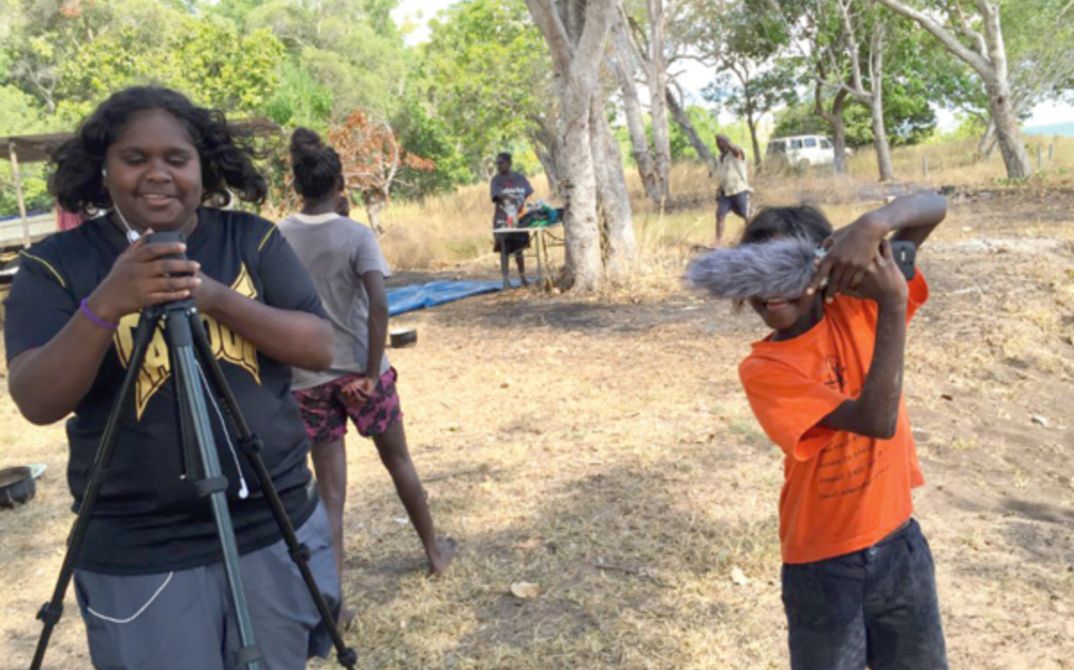The Karrabing Film Collective is comprised at its root of thirty-odd members of extended family members who came together during a crisis in 2010 to begin a process of self-representation and social analysis of contemporary settler colonialism. Thus the style of collectivity has evolved reflects the conditions of the collective. All of the members are Indigenous except Elizabeth Povinelli, who has been living and working with the Karrabing and their parents and grandparents since 1984. The Indigenous members for the most part live below the poverty line thus always managing daily crises of settler racism and poverty.
The Collective’s film production costs are understood within this structure, Povinelli assuming the costs of any funding not explicitly mandated by fund or granting agencies. Stories emerge from one or several members. Someone has an idea and then others add subplots or thematics. Discussions happen in set meetings but also informally, say when a group is taking a break from hunting or on a long drive back from the city or an outstation. Scenes can be “discovered” during other activities, such as when a young member Kieran Sing saw a large bushfire as a found scene for Mermaids. Members chose which roles they wish to play, or chose to let others decide for them. The cinematography is done on iPhones and with multiple members typically taking on the filming task – often dependent on who is on scene. The same is true of onsite recording. Because the task of managing life within the constant severe stresses of settler colonialism makes the task of meta-organization difficult, Povinelli is assigned the “director role.” But unlike industry models, directing here refers to the task of consolidating group decisions and desires.
The new film by Karrabing Film Collective from Australia Mermaids, Or Aiden in Wonderland forms part of the Forum Expanded programme. In Karrabing’s typical experimental mobile phone video aesthetic, the collective stages a zombie story as a critique of colonialist and extractive capitalism.
